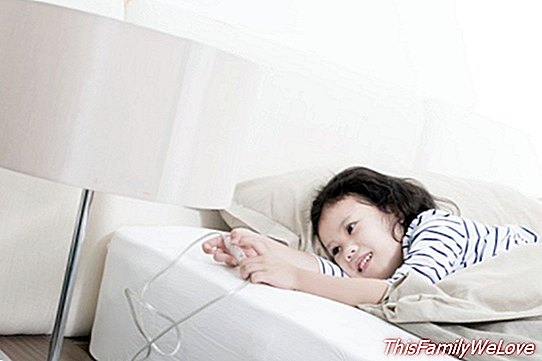Saving energy: tricks to teach children
Light represents 20 percent of the consumption of all households. This is due, on the one hand, according to a report by the Consumer Association FACUA, to 12.7 percent of the average annual rise in the electricity bill, and on the other hand, that Spanish households have begun to increase their consumption. , specifically in 1.9% in 2015 after four years of downward trend, according to data from the Spanish Electricity Network (REE).
In order to curb the environmental impact that this energy cost supposes and to save at home, it is important that we conscientize the energy saving at home and that this example is passed on to children to help ensure that everyone's future is assured.
"Parents are the main model of the children and the behaviors that we carry out will be the ones they will repeat because they understand that they are the ones they are used to seeing and tend to imitate," says child psychologist Eva Hernández Gil . He adds, "if we do not turn off the light when we are in a room or leave the television on when we are not watching it, we are sending a contradictory message to the children".
Energy savings: value your responsible behavior
Using verbal reinforcement and example to instill children's respect for the environment is basic to educate children in values. All this together with a lifestyle associated with environmental care will facilitate children's learning and better understand the consequences that their behaviors imply. In practice, it will be very motivating for them.
Combine small prizes and praise is the most recommended formula to educate children in a responsible use of energy in the home. "For example, if they turn off the light of the room when they leave it, we can put a sticker of the ones they like on their mural or, simply, say 'very good, great, it's great because we save energy'", explains the child psychologist Eva Hernández Gil.
Lights out!

It is important to add to these compliments a plus of involvement, so that children know that they must turn off the lights that are not being used or the devices in 'standby mode' (from the switch, not the remote control), which cause the electricity bill increases up to 10% for the so-called 'phantom consumption'.
Internalize the concepts
As children grow up it is important to help them reflect so that they better understand the need not to waste resources through practical and visual activities such as the one proposed by Hernández Gil and that consists of putting euro cents in a glass jar when They turn off the light or do not waste water when washing their hands and use the resulting money over the weekend to buy an ice cream or their own popcorn for the movies.
In this way, they will be aware over time of what the savings entail and will record them as their own decisions. Or propose to carry out a research work via the internet, an activity with which they will be aware of the value of ecology in practice from knowledge.
Facilitate the task with eco-efficient appliances
But it is also interesting that this awareness of children (and also of parents) is accompanied at home by the use of household appliances and lighting elements that help to save energy. Choosing the exact temperature when showering so as not to waste energy or too much water or use only low-energy bulbs are some good alternatives. Specifically, low-energy bulbs spend five times less energy than incandescent bulbs and have a lifespan up to 15 times longer. In this way, we can participate one hundred percent of a support to the environment that, in the long term, we will all appreciate.
5 tips to set an example and teach how to save energy
1. Artificial light, only the necessary one. From the example, we can turn on the lights only when really necessary and not leave the house without having verified that they are all off; the rest of the time, it is better to take advantage of natural light. Children should see that this is the correct form of behavior, which they will repeat in the image and likeness of the parents.
2. Shower, better than bathroom. As soon as the children have the age or autonomy to do it without supervision, it is convenient to replace the bathroom with the shower. In this way they will consume less water.
3. Unplug the phone when it is charged. Avoid leaving the phone plugged to the charger despite having completed the battery replacement, not opening the refrigerator longer than necessary and avoid introducing foods in it that do not require cold to maintain are some habits that we must perform daily. Of all these acts our children will be direct or indirect witnesses and they will learn with simplicity.
4. Casting: washing and drying. Involve your children in the help with the laundry. Use cold water programs for the washing machine, do not use it at half load and avoid using the dryer as long as the clothes can dry in the open air.
5. Personal hygiene. Some habits such as turning off the tap while we are brushing our teeth, not opening the hot water to wash our hands or staying under the shower only the necessary time are some habits that children may acquire and that will be noticed in the savings of energy at home.
David Casas




